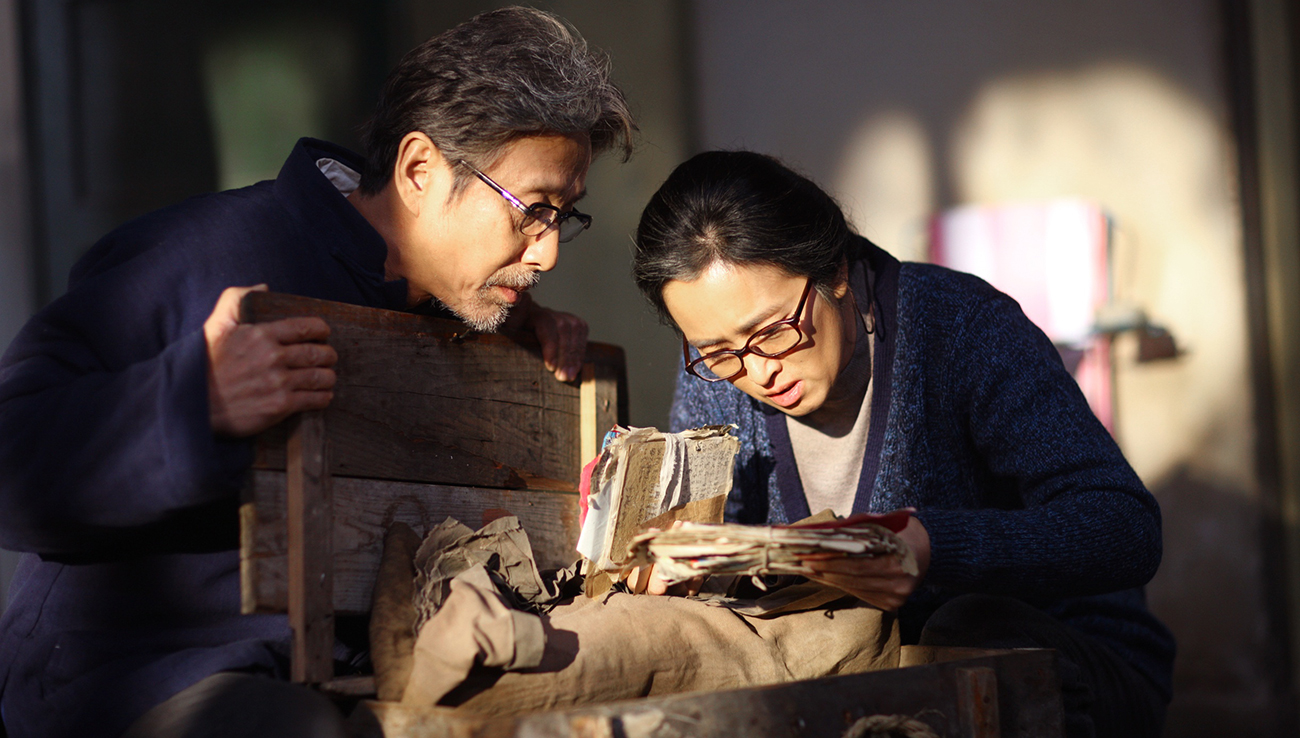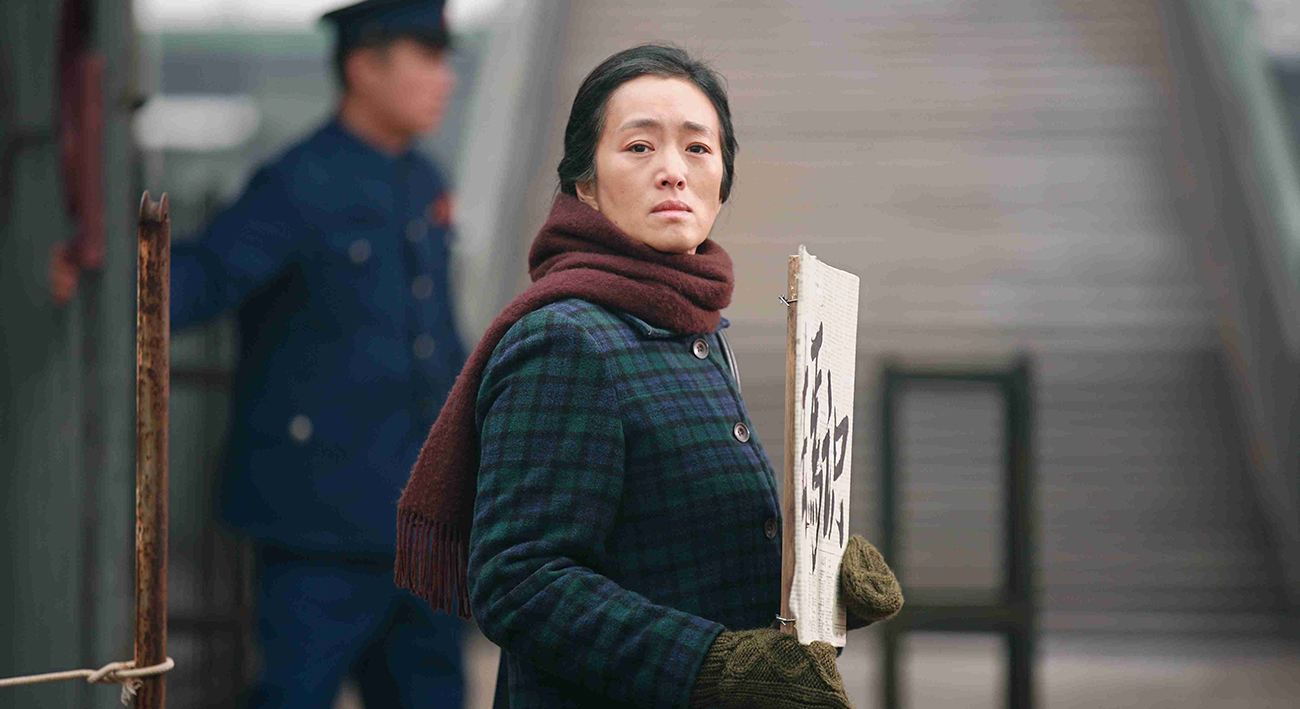In the West we generally know Chinese master filmmaker Zhang Yimou for opulent visuals, such as the endlessly colourful set pieces of Hero and House of Flying Daggers. For his most recent film Coming Home, Zhang pulls back from his Chinese historical spectaculars, instead choosing to set the film in a far more recent period – that of the Cultural Revolution.
Lu Yanshi (Chen Daoming) has been imprisoned for twenty years as a dissident against the Party, leaving his wife Feng Wanyu (the always excellent Gong Li) and daughter Dandan (Zhang Huiwen) alone. Escaping a prison camp, his return home results in an incident that causes Feng to lose much of her memory – including recognition of Lu. What follows is a touching story of love defying the odds and rising above dire political upheaval, as Lu cares for the love of his life with no guarantee that she will ever remember who he is.

The first thing that viewers will notice about Coming Home is the grey and desaturated colour scheme. For a filmmaker who ordinarily revels in colour this seems to be a pointed commentary on the period depicted, an era of repression, paranoia and violence. Indeed, the only burst of colour and movement is during a scene set among a ballet performance, when audience and performers all stand to sing “Sailing the Seas Depends on the Helmsman”, a revolutionary song that became hugely popular during the Cultural Revolution and includes lines such as, “The revolutionary masses can’t do without the Communist Party / Mao Zedong Thought is the sun that never sets.” The Little Red Books that appear in all hands and wave in the air creates an immediate breath-catching red ocean of ripples.
It’s a moment that is double edged – a burst of spectacle that contrasts with the misery of Dandan, relegated to the chorus instead of the principle dancer position in the ballet due to her father being a political dissident. This is the moment Dandan turns informant against her father, setting in motion the tragedy to come. It’s a moment that is a sharp critique in contrast to a film that is calculatedly guarded in its criticisms against China’s past, and implicitly its present as well, a move that makes sense for a filmmaker who has had a long history in running afoul of Chinese authorities and having his films banned. While certain practices are viewed as repressive, there is also a security blanket of “well we’re lucky that doesn’t happen anymore!” draped over the film that seems to be a quiet criticism in itself – the fact these statements are predominantly uttered by party officials seems to be deliberately ironic. If Zhang intends this film to be critical of China’s current state, he has found a very subtle way of expressing it.

Performances-wise, Gong Li unsurprisingly grasps at all audience heartstrings and doesn’t let go, delivering a nuanced performance of a woman who may have lost her memory but still has a firm sense of self. Chen Daoming however shouldn’t be overlooked – he does a lot of heavy lifting particularly in the film’s second half that carries the audience through the most patience-testing moments that require some suspension of disbelief.
With a love story narrative that involves one lover losing their memory, there are really only two possible endings – the happy one, and the oh-dear-god depressing one. It’s a credit to Yimou that he holds his cards close to his chest so that the viewer never quite knows which option he is going to go for until the very last sequence, in which the chosen path is revealed and played to the hilt in terms of emotion. Coming Home isn’t a film that is entirely successful in what it is attempting to do – it is sometimes far too heavy-handed in ways that stress the believability of its central conceit. But it has sincerity to it and is an intriguing reflection of a master Chinese filmmaker turning somewhat of a questioning eye on a dark period in recent history, and how ordinary people can have their lives irrevocably changed via the whims of politics.
